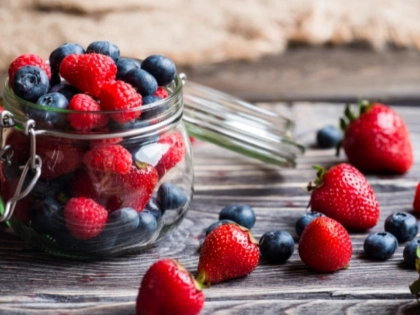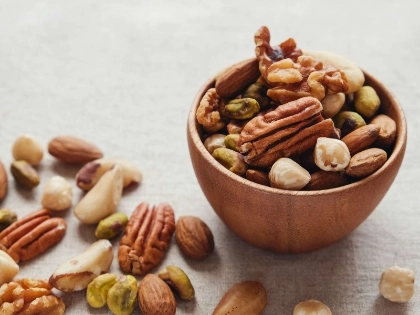Nuts And Sports Performance: Energising Your Exercise
Because they are high in protein and good fats, nuts are a fantastic food choice for athletes. They also aid to promote muscular growth and supply energy for exercise. In a group of young individuals, this study looked into the relationship between nut consumption and several aspects of physical fitness. According to a mediation study, nut consumption and body composition-related variables were partially mediated by CRF and MSI.
Ingredients
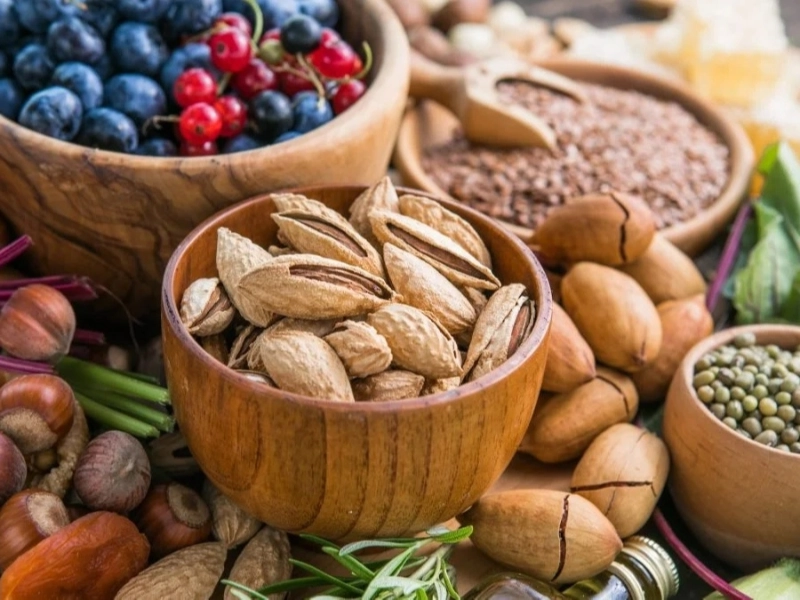
Anti-Inflammatory Characteristics
 As a pre- or post-workout fuel, nuts (almonds, cashews, hazelnuts, peanuts, pecans, pine nuts, and pistachios) are a great source of antioxidants and anti-inflammatory minerals. You can nibble on them in between meals or add them to your protein powder. This blend of protein and good fats speeds up muscle repair and improves overall sports performance.
Lower levels of the inflammatory biomarkers IL-6 and CRP have been linked to frequent nut eating in cohort studies. Soluble fibre, magnesium, l-arginine, vitamin E, and phytosterols are abundant in nuts. Additionally, they include potent bioactive nutritional compounds such polyphenols, MUFAs, tocopherol, selenium, and PUFAs. These compounds are thought to lower cardiometabolic risk factors by reducing inflammation and oxidative stress.
Those who regularly eat nuts have a lower chance of developing cardiovascular disease and metabolic syndrome than those who eat them infrequently, which may be explained by their anti-inflammatory qualities. Further well-designed randomised controlled trials will contribute to a better understanding of the possible immunological and cardiometabolic protection provided by nut intake. These trials should include oxidative stress and inflammatory indicators as key outcomes.
As a pre- or post-workout fuel, nuts (almonds, cashews, hazelnuts, peanuts, pecans, pine nuts, and pistachios) are a great source of antioxidants and anti-inflammatory minerals. You can nibble on them in between meals or add them to your protein powder. This blend of protein and good fats speeds up muscle repair and improves overall sports performance.
Lower levels of the inflammatory biomarkers IL-6 and CRP have been linked to frequent nut eating in cohort studies. Soluble fibre, magnesium, l-arginine, vitamin E, and phytosterols are abundant in nuts. Additionally, they include potent bioactive nutritional compounds such polyphenols, MUFAs, tocopherol, selenium, and PUFAs. These compounds are thought to lower cardiometabolic risk factors by reducing inflammation and oxidative stress.
Those who regularly eat nuts have a lower chance of developing cardiovascular disease and metabolic syndrome than those who eat them infrequently, which may be explained by their anti-inflammatory qualities. Further well-designed randomised controlled trials will contribute to a better understanding of the possible immunological and cardiometabolic protection provided by nut intake. These trials should include oxidative stress and inflammatory indicators as key outcomes.
Energizers
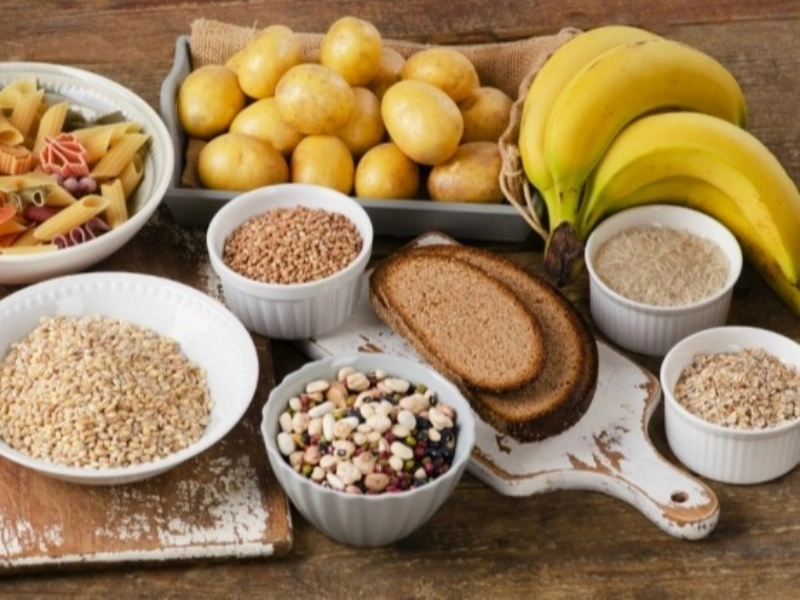 Nuts are high in protein, good fats, vitamin E, dietary fibre, certain minerals, and phytosterols that may have antioxidant properties. They can be eaten whole or processed into nut butters like almond butter, and they are commonly available. They are a natural supply of carbs and a great source of energy for sports. They give athletes a steady energy release so they may concentrate on their workout without having to worry about their blood sugar levels dropping.
A vast range of foods, such as almonds, brazil nuts, hazelnuts, pecans, pistachios, and walnuts, are referred to as nuts. In spite of this, real nuts are chestnuts and acorns, although the majority are classified botanically as seeds of drupes (fruits having a single shell surrounding the seed). Nutty fats are abundant in fat, although most of that fat is mono- and polyunsaturated. Furthermore, research shows that, even after accounting for pertinent variables, regular nut consumption is linked to increased levels of physical fitness components including CRF and handgrip strength.
Nuts are high in protein, good fats, vitamin E, dietary fibre, certain minerals, and phytosterols that may have antioxidant properties. They can be eaten whole or processed into nut butters like almond butter, and they are commonly available. They are a natural supply of carbs and a great source of energy for sports. They give athletes a steady energy release so they may concentrate on their workout without having to worry about their blood sugar levels dropping.
A vast range of foods, such as almonds, brazil nuts, hazelnuts, pecans, pistachios, and walnuts, are referred to as nuts. In spite of this, real nuts are chestnuts and acorns, although the majority are classified botanically as seeds of drupes (fruits having a single shell surrounding the seed). Nutty fats are abundant in fat, although most of that fat is mono- and polyunsaturated. Furthermore, research shows that, even after accounting for pertinent variables, regular nut consumption is linked to increased levels of physical fitness components including CRF and handgrip strength.
Muscle Recuperation
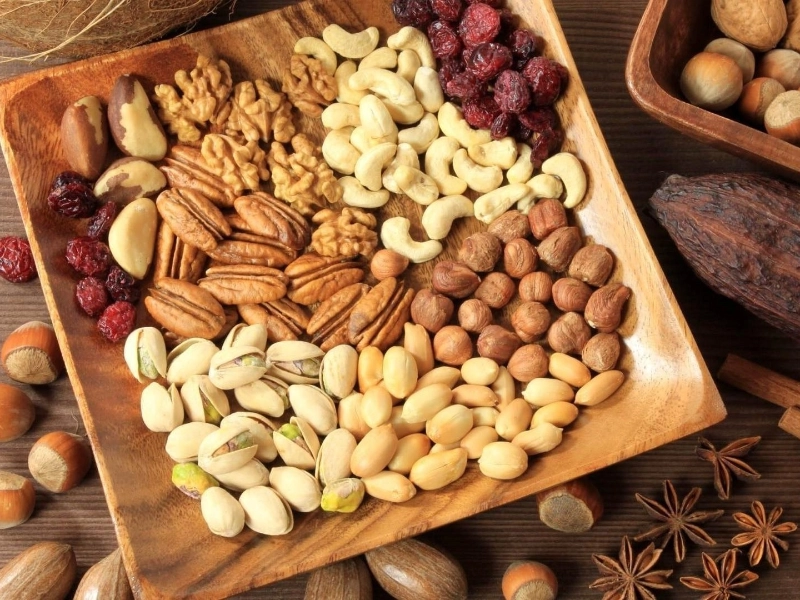 Nuts are rich in protein, good fats, vitamins, and minerals that aid in the development and maintenance of muscle. They can also help hasten the recovery process following exercise and are an excellent source of energy for intense activities.
Regular nut consumption was linked to improved levels of body composition and physical fitness, according to a recent study. When compared to individuals who eat nuts less frequently, those who ingested nuts more frequently demonstrated superior standing long jump, handgrip strength, and cardiorespiratory fitness (CRF).
Vitamin B6 and niacin, potassium, copper, calcium, iron, magnesium, selenium, and zinc are all abundant in peanuts. Nuts are rich in omega-3 fatty acids, antioxidants, and vitamin E. Some people even think that walnuts resemble brains. Additionally, they contain a lot of linoleic acid, which is believed to encourage the growth of muscles.
Nuts are rich in protein, good fats, vitamins, and minerals that aid in the development and maintenance of muscle. They can also help hasten the recovery process following exercise and are an excellent source of energy for intense activities.
Regular nut consumption was linked to improved levels of body composition and physical fitness, according to a recent study. When compared to individuals who eat nuts less frequently, those who ingested nuts more frequently demonstrated superior standing long jump, handgrip strength, and cardiorespiratory fitness (CRF).
Vitamin B6 and niacin, potassium, copper, calcium, iron, magnesium, selenium, and zinc are all abundant in peanuts. Nuts are rich in omega-3 fatty acids, antioxidants, and vitamin E. Some people even think that walnuts resemble brains. Additionally, they contain a lot of linoleic acid, which is believed to encourage the growth of muscles.








